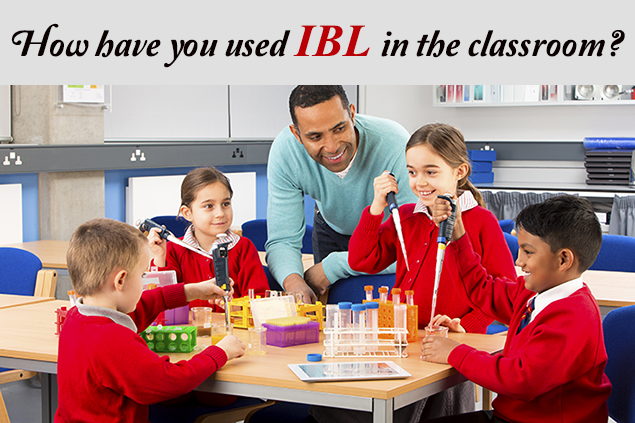How can Teachers Implement Inquiry Based Learning in the Classroom?
Posted by Network Support · Leave a Comment
Involve your students and lead them to understand with Inquiry Based Learning…
Inquiry-based learning (IBL) is an approach to education that places students’ questions, ideas and observations at the center of the learning experience.
The nature of an IBL activity, the process, the end product and how it is shared is dependent upon the developmental level of the students. Teachers play the important part of giving appropriate feedback and support so that students are able to build on the knowledge they already have.
It is useful for teachers to classify their students as inquirers. For all types of inquirers, the teacher monitors progress at the end of each class. He/she also identifies and shares the evaluation criteria, involving students in the process more and more, depending on which level of understanding they’re at with the IBL.
Here are some pointers that may be useful in implementing inquiry-based learning:
1. Students New to Inquiry
When students are first being initiated into the inquiry process, generally from Kindergarten to Grade 3, it is best to ease them into it. Teachers should limit the number of new concepts and skills that will be introduced. The teacher picks a topic too, so that students can begin inquiry directly, without being overwhelmed.
At this stage students should be able to:
- Choose from a set of concrete topics that have been pre-selected.
- Connect the topic to their personal experiences and work on it.
- Talk to others to gather information and go through informational texts.
- Use note-taking skills to record their information.
- Begin to use technology to locate, organize, and create presentations.
- Create a basic report or presentation based on specific guidelines.
2. Limited Inquiry Experience Learners
Students who already have an idea of how IBL functions can be allowed more freedom in picking a topic and directing the inquiry process. Usually students in Grade 4 to 6, in whose schools IBL is a common teaching practice, know the basics of how IBL classrooms work, but still need the teacher to be involved in the different steps of inquiry. While guiding students at this level, the teacher should watch for certain signs as a mark of development in the inquiry process and in the student.
At this stage students should be able to:
- Select a topic within the general curriculum theme.
- Build basic understandings based on background knowledge.
- Talk to others to gather information.
- Find guides, such as online library catalogues, online subject directories, and keyword and subject searches.
- Create a basic report or presentation.
- Use technology to locate graphics and media to enhance their report.
3. Reasonable Inquiry Experience Learners
By the time students are in Grades 7 to 9, their knowledge base widened and they are also able to grasp instructions easily. At this stage, teachers are able to orient the students and then help them take charge of the inquiry process.
The teacher also teaches students interviewing skills and presents them a choice of notes or graphic organizers to record information. Students are specifically taught note-taking skills, including highlighting techniques and the teacher assists students in modifying and adapting their topics.
At this stage students should be able to:
- Select issues-based topics, arguing for or against it.
- Build on their general background understandings of the theme.
- Carefully select and evaluate a variety of resources.
- Use search guides and the internet appropriately.
- Create a report based on guidelines provided in the planning phase.
- Use technology appropriately to enhance their presentations and reports.
4. Advanced Inquirers
When students have been following the inquiry-based approach over a period of time, they are able to understand its significance and also how they must go about it in a manner that is productive. By the time students get to this stage (usually Grade 10 to 12 and beyond) teachers can allow them greater control over the inquiry process.
At this stage students should be able to:
- Select specific topics, develop and support a position or point of view for thesis-based inquiry.
- Build on their general background understandings of their topic.
- Carefully select and evaluate a variety of resources.
- Use search guides and the internet, conduct interviews.
- Record information using note-taking strategies and create a report in response to the needs and interests of the audience.
- Use technology creatively to enhance their presentations and reports.
- Monitor and adapt inquiry skills and strategies during the process.
Like this article for teachers?
Browse the Professional Learning Board COURSE CATALOG to find related online courses for teachers in your state. Professional Learning Board is a leading provider of online professional development classes that teachers use to renew a teaching license or renew a teaching certificate.





